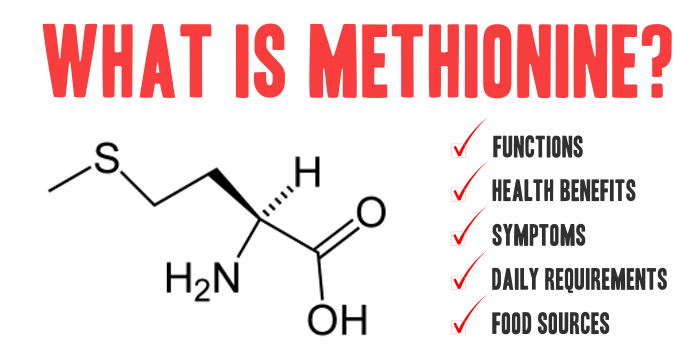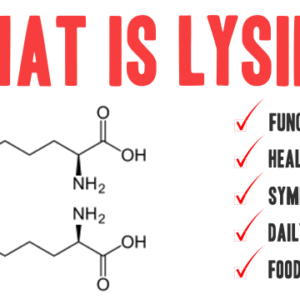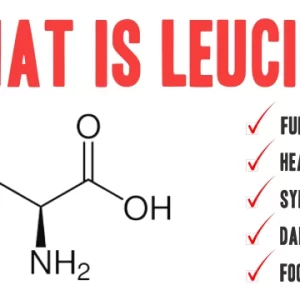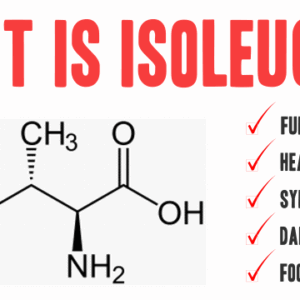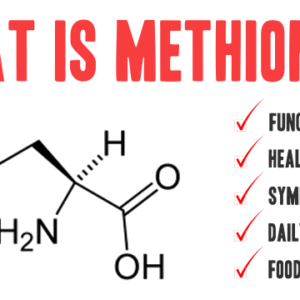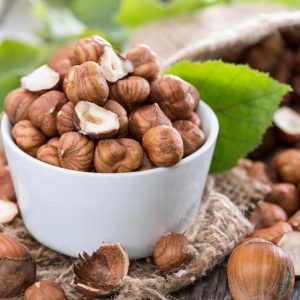What Is Methionine?
Methionine is one of the nine essential amino acids—nutrients the body cannot produce on its own and must obtain from food. It is a sulfur-containing amino acid, playing a foundational role in protein synthesis, methylation, and cellular detoxification processes.
Methionine is a precursor to cysteine, glutathione (the body’s master antioxidant), and important methyl-donor molecules like S-adenosylmethionine (SAMe). These compounds are crucial for liver health, DNA methylation, immune function, and even mood regulation.
Functions of Methionine in the Body
1. Methylation and DNA Regulation
Methionine is the primary source of methyl groups in the body. It converts into S-adenosylmethionine (SAMe), a key methyl donor used in hundreds of reactions—including DNA synthesis, gene expression, and neurotransmitter production. Abnormal methylation is linked to aging, cancer, and neurological conditions (Lu, 2009).
2. Liver Detoxification and Glutathione Production
Methionine supports phase II liver detoxification by contributing to glutathione synthesis via its role as a precursor to cysteine. Glutathione neutralizes free radicals and supports the body’s detoxification of heavy metals and environmental toxins (Wu et al., 2004).
3. Fat Metabolism and Liver Protection
Methionine helps prevent fatty liver disease by transporting fat out of the liver. It contributes to lipotropic activity—breaking down fats and preventing fat accumulation in the liver.
4. Joint and Cartilage Support
Through SAMe, methionine plays a role in the synthesis of cartilage and connective tissue, making it potentially useful in managing osteoarthritis symptoms (Bradley et al., 2002).
5. Mood and Brain Health
SAMe (derived from methionine) influences serotonin and dopamine levels, which are important for mood balance. Research supports SAMe supplementation for depression and cognitive function.
Health Benefits of Methionine
Supports detoxification and antioxidant defense
Aids in fat metabolism and prevents fatty liver
Promotes collagen and joint repair via SAMe
Essential for DNA methylation and gene expression
Enhances neurotransmitter balance and mood
Plays a role in muscle and tissue growth
Methionine Deficiency: Symptoms and Risk Factors
Risk Factors Include:
Diets low in protein
Chronic liver disease
Malabsorption syndromes (e.g., IBD, celiac disease)
Vegan diets without sufficient sulfur-containing protein sources
Symptoms of Methionine Deficiency:
Fatty liver
Muscle wasting
Slow growth (in children)
Mood disturbances
Poor detoxification
Increased oxidative stress
Daily Methionine Requirements
According to the World Health Organization (WHO):
Adults: 10.4 mg of methionine + cysteine per kg of body weight per day
For a 70 kg adult, this equals approximately 728 mg/day
Methionine is often combined with cysteine requirements due to their overlapping functions.
Methionine-Rich Foods
Methionine is found abundantly in animal-based proteins, but also occurs in some plant-based sources.
Top Methionine-Rich Foods:
| Food | Serving | Methionine Content |
|---|---|---|
| Eggs | 1 large | ~190 mg |
| Chicken breast | 3 oz (85g) | ~580 mg |
| Beef | 3 oz | ~550 mg |
| Tuna | 3 oz | ~600 mg |
| Parmesan cheese | 1 oz | ~275 mg |
| Brazil nuts | 1 oz | ~350 mg |
| Tofu | ½ cup | ~200 mg |
| Lentils (cooked) | 1 cup | ~125 mg |
| Sunflower seeds | 1 oz | ~125 mg |
Plant-based diets should pair legumes with grains, nuts, or seeds to ensure adequate methionine intake.
Methionine Supplementation
Forms:
L-methionine (common in supplements)
SAMe (derived metabolite with clinical applications)
Uses:
Liver detoxification support
Prevention/treatment of fatty liver
Osteoarthritis symptom relief
Support for depression (via SAMe)
Enhancing antioxidant capacity (via glutathione)
Typical Dosage:
L-methionine: 500–2,000 mg/day (in divided doses)
SAMe (for depression or joint health): 400–1,600 mg/day
Safety Considerations:
High doses may increase homocysteine, a cardiovascular risk factor
Co-supplementation with B6, B12, and folate is often recommended
Individuals with homocystinuria should avoid methionine supplements
Clinical Research Highlights
Liver Protection: Methionine-deficient diets are associated with fatty liver disease, oxidative stress, and liver inflammation (Oz et al., 2015).
Depression Management: SAMe, derived from methionine, has been shown in clinical trials to be as effective as antidepressants in some patients (Mischoulon & Fava, 2002).
Joint Health: SAMe has anti-inflammatory properties and is effective for osteoarthritis pain, with fewer side effects than NSAIDs (Bradley et al., 2002).
Conclusion
Methionine is more than just a protein-building amino acid—it plays a central role in methylation, detoxification, liver health, and antioxidant defense. Its derivatives, especially SAMe and glutathione, are vital for mood, joint function, and cellular protection.
Ensuring adequate methionine through diet or supplementation can enhance energy metabolism, protect liver function, and support overall health—especially in those at risk of deficiency or with chronic health concerns.
References
Wu, G., et al. (2004). Glutathione metabolism and its implications for health. The Journal of Nutrition, 134(3), 489–492.
Lu, S. C. (2009). Regulation of glutathione synthesis. Molecular Aspects of Medicine, 30(1–2), 42–59.
Mischoulon, D., & Fava, M. (2002). Role of S-adenosyl-L-methionine in the treatment of depression. American Journal of Clinical Nutrition, 76(5), 1158S–1161S. https://pubmed.ncbi.nlm.nih.gov/12420702/
Bradley, W. G., et al. (2002). S-adenosylmethionine in the treatment of osteoarthritis: Meta-analysis. BMC Musculoskeletal Disorders, 3, 6.
Oz, H. S., et al. (2015). Methionine-deficient diet-induced hyperhomocysteinemia and hepatic oxidative stress. BioMed Research International, 2015, 1–6.

